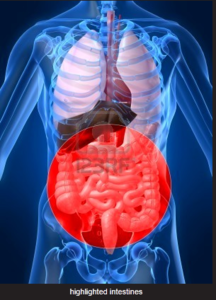With the advent of biosimilar anti-tumour necrosis factor (TNF), new options have opened up for the treatment of inflammatory bowel disease (IBD) in Australia. Author Richard B Gearry of the University of Otago, Christchurch, New Zealand, discusses what needs to be taken into consideration when physicians prescribe anti-TNF products [1].
The first consideration, according to Gearry, is the drug delivery system to use. The decision of whether to use a subcutaneous anti-TNF drug (adalimumab) or an intravenous anti-TNF drug (originator or biosimilar infliximab) can depend on convenience, but with respect to adherence, infusion is more favourable than injection.
There are also biosimilars of adalimumab to be expected in the not too distant future. The patents on the originator product, Humira (adalimumab), will expire in the US in December 2016 and in Europe in April 2018 [1]. Both Amgen and Samsung Bioepis have already submitted marketing applications for their biosimilar candidates in the US and Europe [2].
The author points to the cost savings to be gained by using biosimilar infliximab. However, he also points to the fact that although the biosimilar ‘appears to have similar characteristics to infliximab in ankylosing spondylitis patients, limited data exist concerning its use in IBD patients with no randomized controlled trials yet available’. The originator infliximab, on the other hand, ‘has a plethora of studies in IBD supporting its use, and there is tremendous clinical experience’.
Other options for the treatment of IBD include vedolizumab (Entyvio; Takeda Pharma) and natalizumab (Tysabri; Biogen Idec/Elan). The patents on Tysabri expired in March 2015 in the US and in August 2015 in Europe [1]. Entyvio, on the other hand, was only approved by the European Union and the US Food and Drug Administration in May 2014.
Gearry concludes that ‘the arrival of a new drug provides many opportunities for IBD physicians and their patients. However, it is important that we continue to observe our patients closely, identify targets and reassess regularly in order to obtain the very best outcome’.
Editor’s comment
Readers interested to learn more about extrapolation and interchangeability of biosimilars are invited to visit www.gabi-journal.net to view the following manuscript published in GaBI Journal:
Investigating the validity of biosimilar extrapolation and interchangeability
GaBI Journal is indexed in Embase, Scopus, Thomson Reuters’ ESCI, and more.
Readers interested in contributing a research or perspective paper to GaBI Journal – an independent, peer reviewed academic journal – please send us your submission here.
Related articles
Biosimilars of natalizumab
Extrapolation of biosimilar infliximab indications to inflammatory bowel disease
References
1. GaBI Online - Generics and Biosimilars Initiative. Biologicals patent expiries [www.gabionline.net]. Mol, Belgium: Pro Pharma Communications International; [cited 2016 Oct 14]. Available from: www.gabionline.net/Biosimilars/General/Biologicals-patent-expiries
2. GaBI Online - Generics and Biosimilars Initiative. Biosimilars of adalimumab [www.gabionline.net]. Mol, Belgium: Pro Pharma Communications International; [cited 2016 Oct 14]. Available from: www.gabionline.net/Biosimilars/General/Biosimilars-of-adalimumab
Permission granted to reproduce for personal and non-commercial use only. All other reproduction, copy or reprinting of all or part of any ‘Content’ found on this website is strictly prohibited without the prior consent of the publisher. Contact the publisher to obtain permission before redistributing.
Copyright – Unless otherwise stated all contents of this website are © 2016 Pro Pharma Communications International. All Rights Reserved.








 0
0











Post your comment